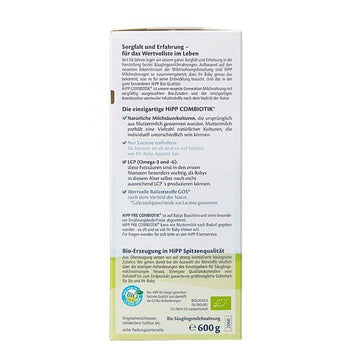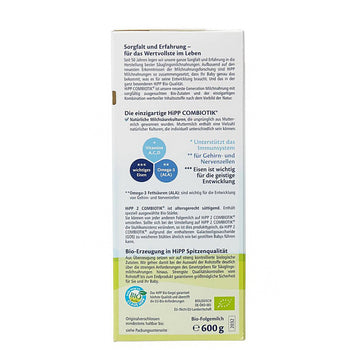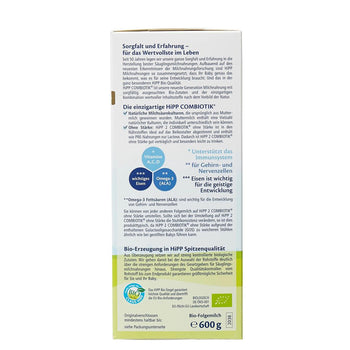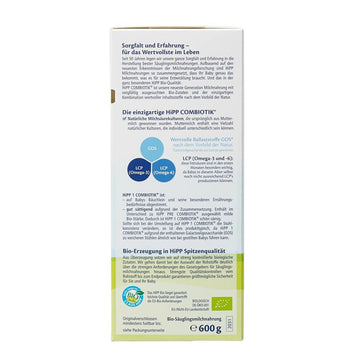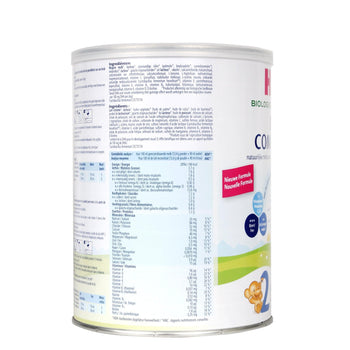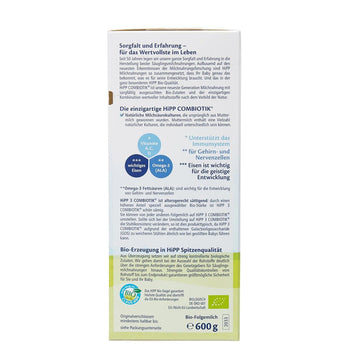Organic baby formula has gained significant popularity among parents looking for cleaner, more natural nutrition for their infants. However, with this rise in demand, several misconceptions have emerged, leading to confusion about its benefits and drawbacks. In this blog post, we’ll debunk some of the most common myths surrounding organic baby formula and uncover the facts so parents can make informed decisions.
Myth 1: Organic Baby Formula Is Just a Marketing Gimmick
Some people believe that the term "organic" is merely a marketing ploy designed to increase prices without offering real benefits. However, this is far from the truth. Organic baby formula must meet strict regulatory standards, such as USDA Organic or European organic certifications, which require that the ingredients are free from synthetic pesticides, GMOs, antibiotics, and artificial additives.
Conventional baby formulas often contain added sugars, preservatives, and other synthetic ingredients that are not found in certified organic options. Choosing an organic baby formula ensures that your baby is getting high-quality ingredients without harmful chemicals or genetically modified components.
Myth 2: Organic Formula Has the Same Ingredients as Regular Formula
While both organic and conventional formulas are designed to meet the nutritional needs of infants, the key difference lies in their ingredient sourcing and processing. Organic baby formulas use milk from grass-fed cows that are not treated with synthetic hormones or antibiotics. They also avoid artificial sweeteners like corn syrup and focus on lactose as the primary carbohydrate source.
Moreover, organic formulas prioritize natural sources of DHA and ARA—essential fatty acids for brain and eye development—rather than those extracted using hexane, a chemical solvent found in some conventional formulas. Parents seeking a cleaner option will find that organic formulas provide the same essential nutrients without unnecessary additives.
Myth 3: Organic Formula Is Nutritionally Inferior to Conventional Formula
Some believe that organic formulas lack key nutrients compared to conventional options. In reality, all baby formulas—whether organic or not—must adhere to rigorous nutritional guidelines set by regulatory bodies to ensure they support a baby’s growth and development.
Organic baby formulas contain the necessary vitamins, minerals, and macronutrients needed for infant health. Some parents worry about the presence of DHA and iron levels in organic formulas, but many high-quality organic brands supplement their formulas with these essential nutrients in bioavailable forms that are easy for babies to digest.
Myth 4: U.S. Organic Formula Is Always Better Than European Organic Formula
U.S. organic formulas have a strong reputation, leading many parents to believe they are superior to European formulas. While U.S. formulas follow strict FDA regulations—ensuring high safety standards and required nutrients—European formulas have their own advantages, such as prioritizing whole milk over skim milk and avoiding certain synthetic ingredients.
The best formula for your baby depends on individual needs. Some babies thrive on U.S. organic formulas, while others tolerate European formulas better. Instead of focusing on geographical origin, parents should consider ingredient quality, lactose source, and their baby’s digestive health when making a choice.
Myth 5: Organic Formula Is Too Expensive to Be Worth It
Organic baby formula often costs more than conventional options due to the higher-quality ingredients and stringent production processes. While the price may seem steep, many parents find it worth the investment for the potential health benefits.
Additionally, there are ways to make organic formulas more affordable. Buying in bulk, signing up for subscription services, and exploring different brands can help reduce costs. Some families also consider the long-term benefits of reducing exposure to synthetic chemicals and additives, which may contribute to better overall health.
Conclusion
Misinformation about organic baby formula can make it challenging for parents to make the best choice for their little ones. The truth is that organic formulas offer clean, high-quality nutrition, free from unnecessary chemicals and additives, while still meeting all the essential dietary needs of infants.
At Euro Mall USA, we offer a carefully curated selection of organic baby formulas that prioritize safety, nutrition, and quality. Whether you’re considering making the switch or simply exploring your options, our products provide peace of mind for parents seeking the best for their babies.
When it comes to feeding your baby, knowledge is power. By separating fact from fiction, you can make a well-informed decision that supports your child’s health and well-being.















